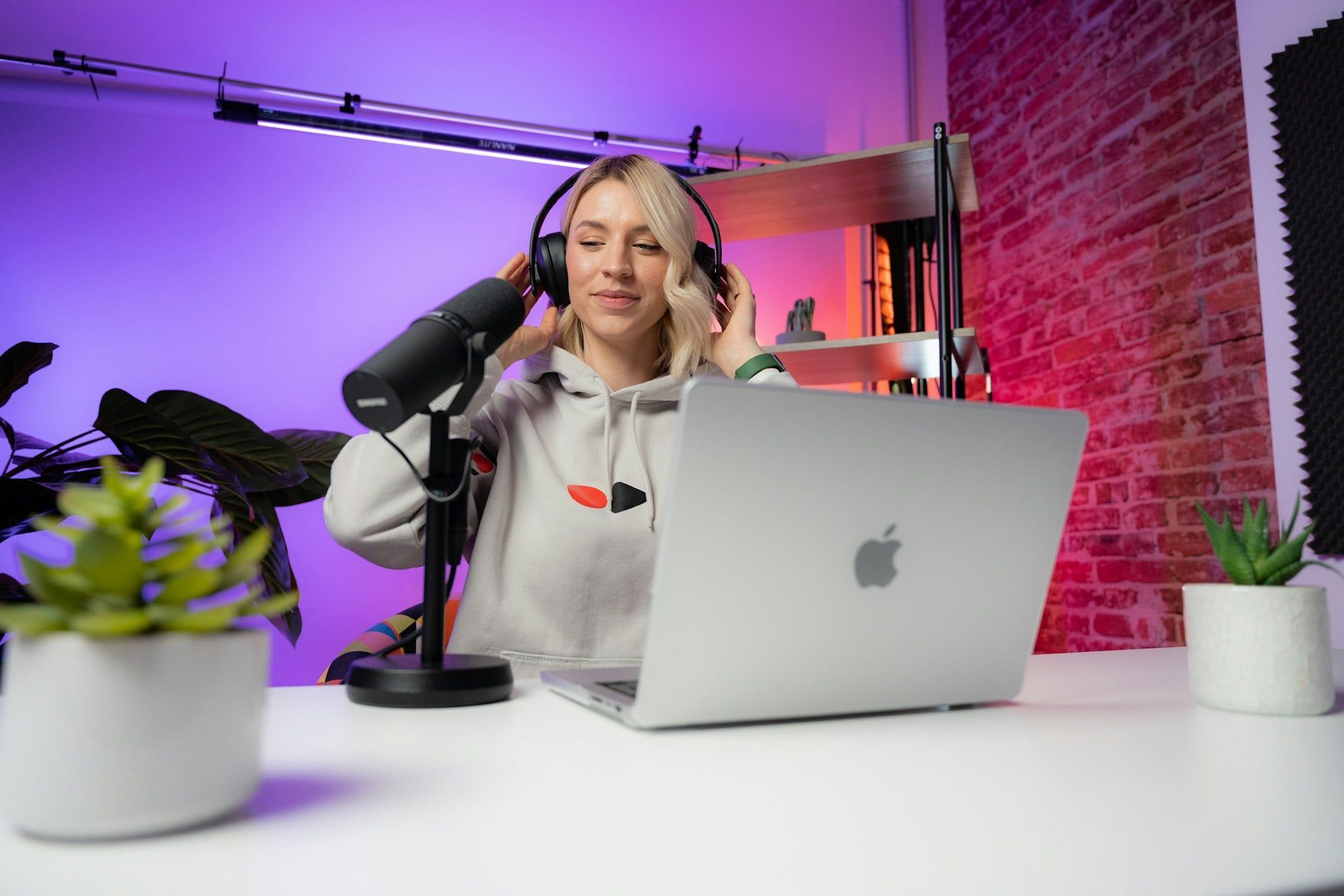Edmonton SEO & Web Design: Your Checklist for a Killer 2025 Online Presence
by Aaron Janes, Founder
If your a business owner, and you want to learn the same strategies that I use to grow my business and my clients, then sign up for my newsletter.

I can't believe 2024 is almost over. 2025 is now a mere three weeks away, and what a year it has been. The launch of Ignite Web Design has been something really special, and to finish off the blog on a high, I wanted to talk about something near and dear to my heart.
Getting really to absolutely dominate next year and grow your business like never before.
Let's be honest: this year, everything changed.
AI technology has cemented itself further into the natural way of doing things. Google has launched several updates and one big leak of over 2,500 documents in volume. The ways of doing modern online business or managing a web presence has never changed so fast.
If you're looking to thrive in 2025, this is your time to get everything in order, not only fixing anything that needs fixing but setting up for improvements and getting ahead.
That's what we're talking about today. This is your complete checklist for perfecting your Edmonton SEO and web design, ready to start a new chapter and to take your business to the next level.
Let's get into it.
Website Design & Development: Making a Killer First Impression

First, your website. Your online HQ. The place everyone goes to check out who you are and what you're offering and decide whether or not they want to work with you.
If you don't get the first impression right, showcase your value clearly, or let the search engines know you mean business, you won't rank high.
Let's break it down.
Modern Design Trends
2025 is all about clean, sleek, and user-friendly designs.
Think minimalism, with plenty of white space and a focus on essential elements. Dark mode is also gaining popularity, offering a sophisticated look and reducing eye strain (perfect for those late-night browsing sessions!).
And don't forget about interactive elements like animations and micro-interactions that add a touch of personality and delight.
Mobile-First Indexing: It's a Mobile World
Did you know that over 61% of website traffic comes from mobile devices? That's why Google prioritizes mobile-first indexing, meaning they primarily use the mobile version of your site for ranking and indexing.
So, if your website isn't responsive, you're practically waving goodbye to those valuable mobile users. Make sure your site looks amazing and functions flawlessly on all devices, from smartphones to tablets to desktops.
Head over to your website, press F12, and click through the pages. If something doesn't fit, doesn't work correctly, there's text overhanging the edge of the screen, and things like this, you've got to fix it.
User Experience (UX): The Key to Happy Visitors
If a user comes to your website and can't find what they're looking for, they will go elsewhere. Research shows decisions like this are, on average, made within about two seconds of entering a page.
This means you've got to optimize every part of the process. This translates as improving your navigation so it's crisp and clear, speeding up slow loading times and making your calls to action super clear.
A seamless and enjoyable user experience will keep visitors engaged and increase the likelihood of conversions.
Accessibility: Websites for Everyone
Accessibility isn't just a buzzword; it's essential for creating an inclusive online experience. Ensure your website is accessible to everyone, including people with disabilities.
This means using proper heading structures, alt text for images, and sufficient colour contrast. Not only is it the right thing to do, but it also improves your website's SEO and reach.
Bring these main considerations together (considerations that Google has officially stated are so important for creating a good, quality modern web experience), and you'll be onto a winning website.
And, of course, all the standards, such as good, valuable content, nice pictures, valuable offerings, and so on, are still relevant.
Search Engine Optimization (SEO): Get Found in the Digital Jungle

With the website sorted, it's time to sell the world and get yourself to the top of the SERPs, and this means SEO.
So, how's your SEO been in 2024?
Been keeping up to date with the trends? Did you learn a lot from Google's 2,500-document leak that was officially confirmed?
How are you finding their Helpful Content update and their push against AI spam content and promotion of people-first value?
If you don't know what I'm talking about well, go to the blog and read the other posts because there's a lot to cover there, or just read the updates from the links in the paragraph above.
If you're in the know and ready to get things tightened up, here's what you need to focus on.
Keyword Research: Speak Your Customer's Language
Keyword research is a classic and still as important today as it ever has been.
First, who are your current customers, are your target audience, and what are they searching for? I mean that, literally. What are the words and phrases they put into Google?
This means searching for phrases, words, and long-tail sentences related to your business, seeing which ones people are searching for, then writing content for them and adding these terms and phrases naturally into your web pages.
Tools like Google Keyword Planner, Ahrefs, and SEMrush are ideal for this.
Remember, SEO isn't a one-and-done process, so before we get into 2025, review your content, conduct some keyword research, and make sure the keywords you're using are serving you, ready for next year.
On-Page Optimization: Fine-Tuning Your Website
On-page optimization is all about making your website appealing to both search engines and users. It's like dressing up your storefront to attract customers.
Pay close attention to your title tags and meta descriptions – these are the snippets that appear in search results, so make them compelling and keyword-rich.
Use header tags (H1, H2, etc.) to structure your content and make it easy to read. And don't forget to optimize your images with descriptive alt text.
Off-Page Optimization: Building Your Online Reputation
Off-page optimization is like word-of-mouth marketing in the digital age. It's about building your website's authority and reputation through external sources. One of the most effective off-page strategies is link building.
Think of it as getting other reputable websites to vouch for you. You can also boost your online presence through social media marketing and online reputation management.
Local SEO for Edmonton: Dominate Your Local Market
For Edmonton businesses, local SEO is crucial. You want to be the top result when someone searches for "web design Edmonton" or "SEO services Edmonton," right?
Optimize your Google My Business profile with accurate information, compelling photos, and regular posts. Also, make sure your business is listed on relevant online directories and citation sources.
Content Marketing: Fueling Your Online Engine

Think of your website as a car. Sure, it looks great and the engine's purring thanks to SEO, but it needs fuel to really hit the road. That fuel is content. It's what drives engagement, builds trust, and ultimately converts visitors into loyal customers.
High-Quality Content is a Must
Google has made this very clear throughout their 2024 updates - quality content is absolutely everything.
This means valuable content that people search for, find, and it gives them exactly what they're looking for.
That information also needs to meet EEAT (Experience, Expert, Authority, Trustworthy) standards, such as linking to credible sources and being factually correct by all standards. It also means the content needs to be written or include information from people who are authorities in your field.
This always means growing your reputation in the field you're in, which could be giving talks, writing a book, growing on social media, going on podcasts, and becoming an expert in the field.
At the end of the day, Google wants to give their users the best, most valuable, most credible information possible, and if you can do that, you'll rank number one.
Go through your blog, update everything, remove anything that doesn't serve, and add new content that puts you at number one.
Answer your audience's questions, solve their problems, and leave them wanting more. That's the mission and every piece of content should contribute to that.
Content Formats: Mix It Up
Don't limit yourself to just blog posts. The world of content marketing is vast and varied! Experiment with different formats to keep your audience engaged and cater to various learning styles.
Create captivating videos, share insightful infographics, or even launch a podcast.
Content repurposing is also massive.
This means if you write a listicle on, say, things to do to get your website ready for next year, convert it into a social media series, short-form video, like a TikTok, make a YouTube video, generate an infographic.
Don't just write content once and leave it be. Get as much mileage as you can from your efforts. Work smarter, not harder.
Content Promotion: Spread the Word
Creating amazing content is only half the battle. You also need to get it in front of the right people. Promote your content through social media channels, email marketing campaigns and other online platforms.
Engage with your audience, answer their questions, and encourage them to share your content with their networks.
Content marketing is an ongoing journey, but the rewards are worth the effort. By consistently creating and promoting high-quality content, you'll attract more visitors, build stronger relationships, and ultimately drive more business.
Digital Marketing: Broadcasting Your Message

With these strategies set up and running, you've essentially covered the foundations of your organic marketing. People search and find you and choose to interact with your business.
The trick to success these days is to mix this with a bit more of a proactive approach, and this means digital marketing - the art of how you broadcast your message to the world and attract your ideal customers.
From social media to email marketing and paid advertising, there are countless ways to connect with your audience and drive business growth.
Social Media Marketing: The Social Butterfly
Social media is non-negotiable.
It was important before, but with the Google leaks confirming that ranking is affected (we can’t confirm how much, the content suggests there’s at some trust signal from this) by social accounts, their engagement, follower accounts, and how "successful" they are, it's just unavoidable.
It's where your customers hang out, connect with friends, and discover new brands.
Choose the platforms that align with your target audience and create engaging content that sparks conversations. Don't just broadcast; listen to your audience, respond to comments, and build relationships.
And this means not trying to take up every platform and doing a hard-a** job on it. Pick a platform or two and master it. Pick the one where your main audience is hanging out.
Facebook for older generations. Instagram and TikTok for younger ones. Marketers love X (Twitter), but many freelancers, business owners, and middle-aged people prefer YouTube.
Find where your people are and speak with them.
Email Marketing: The Loyal Companion

While social media is great for building brand awareness, email marketing is your secret weapon for nurturing leads and driving conversions. Build an email list by offering valuable content upgrades or exclusive discounts.
Then, use email campaigns to stay top-of-mind, share exciting news, and promote your products or services.
Paid Advertising: The Turbo Boost
Want to reach a wider audience and get faster results? Consider paid advertising platforms like Google Ads or social media ads.
These platforms allow you to target specific demographics, interests, and behaviours, ensuring your message reaches the right people at the right time.
Analytics and Tracking: The Data Detective
How do you know if your digital marketing efforts are paying off? That's where analytics and tracking come in. Use tools like Google Analytics to monitor your website traffic, track conversions, and understand user behaviour.
This data will help you refine your strategies and optimize your campaigns for maximum impact.
Digital marketing is an ever-evolving landscape, but by staying informed and adapting to new trends, you can effectively reach your target audience, build brand loyalty, and drive business growth.